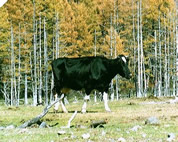|
|
|
|
|
Report
No.230704 |
|
|
|
|
- International - |
||
|
Japan Opposes the Proposed Revision of International Standards on BSE
The draft revision deletes a provision which currently limits import of beef from BSE infected countries to that made from cattle of '30 months of age or less.' Japan's comment in opposition is based on the views of BSE experts etc. that say "there is no scientific grounds" to delete the age limitation. The government intends to express the comment in opposition also at the general session of the international committee of OIE, the highest authority of the organization, planned to be held in May. The comment seeks maintenance of the current standard concerning conditions of beef trade. The deleting of age limitation is opposed in light of the great probability that the higher the age of cattle the more likely is the pathogen of BSE accumulated (in the peripheral nerve of highly aged cattle, for instance.) OIE also proposes deleting 'suspect or confirmed BSE cases' and to introduce instead the passing of eye-observed inspection as a condition. Japan can not support this revision because there are reported cases of infection from cattle which did not show clinical symptoms. Japan is also opposed to a revision to the method of categorizing countries in a way that will allow to put a country on a 'negligible risk' category so it would be allowed to ship beef without removing the special risk materials if all infected cattle is 8 years of age and older. If the proposed revision were to be applied, the United States of America will become a 'negligible risk' country which is free from restrictions on beef export, and Japan, while conducting universal testing, would be categorized as the country of 'undetermined risk,' and will be subjected to severe restrictions, according to Mr. Yasuhiro Yoshikawa, the chairman of Food Safety Commission's Prion Experts Committee. On the standards of surveillance for the purpose of grasping prevalence of BSE, Japan seeks continuation of deliberate discussions. Japan supports the idea to make a clear identification of cattle to be brought under surveillance, and to make it compulsory to test all cattle that show clinical sings. OIE international health standards do not have binding authority over its member countries. |
|||
|
|
|||
